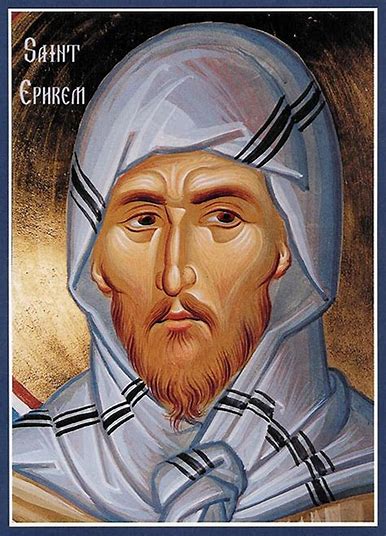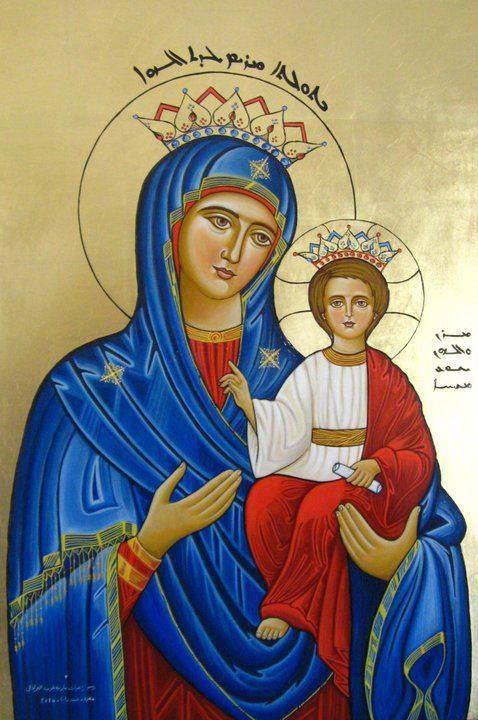 Today, the Church liturgically recalls the life and work of Our Holy Father Ephrem the Syrian.
Today, the Church liturgically recalls the life and work of Our Holy Father Ephrem the Syrian.
As we have seen, the theology of Syrian was a fountain of teaching about the incarnation of our Lord, especially his baptism in the Jordan. The feast of Theophany was the foremost manifestation of the Triune God. Among the Syrian theologians, none was most important than St. Ephrem.
Born of pagan parents, he found the Christian faith, was baptized and eventually ordained a deacon. His life was marked by asceticism, as he imitated our Lord in the desert. He had the ascetic gift of tears, sorrow for sin and joy in the salvation of our Lord. His Troparion begins, “Your abundant tears made the wilderness sprout and bloom, and your deep sighings made your labor fruitful a hundredfold. “His theology was equal to the greatest fathers, but his style was entirely different. He wrote in verse, so that it might be sung in hymns, and so he is called the “Harp of the Holy Spirit.”
The corpus of his work was huge, and over 400 hymns still exist, many of which are used in the Syrian Liturgy. He writes of the mystery of the Incarnation:
“A tiny stream from your teaching, Lord,
For us below makes a flood of interpretations.
In your Bread is hidden a Spirit not to be eaten,
In your Wine dwells a Fire not to be drunk.
Spirit in your Bread, Fire in your Wine,
A wonder set apart, [yet] received by our lips!
See, Fire and Spirit in the womb that bore you!
See, Fire and Spirit in the river where you were baptized!
Fire and Spirit in our Baptism;
In the Bread and the Cup, Fire and Holy Spirit!” (Hymns on the Faith 10)
Meditation by Archpriest David Petras
#ByzantineCatholicNewHaven
#ByzantineCT
#ByzantineConnecticut
 The month of May is traditionally known on as the Month of Mary. The Church holds Mary in the highest esteem; she is venerated but not worshipped by Catholics and Orthodox. A Syrian Father, St Ephrem, –the Harp of the Holy Spirit– the fourth century hymnographer, theologian and deacon as something to offer about the Mother of God.
The month of May is traditionally known on as the Month of Mary. The Church holds Mary in the highest esteem; she is venerated but not worshipped by Catholics and Orthodox. A Syrian Father, St Ephrem, –the Harp of the Holy Spirit– the fourth century hymnographer, theologian and deacon as something to offer about the Mother of God.